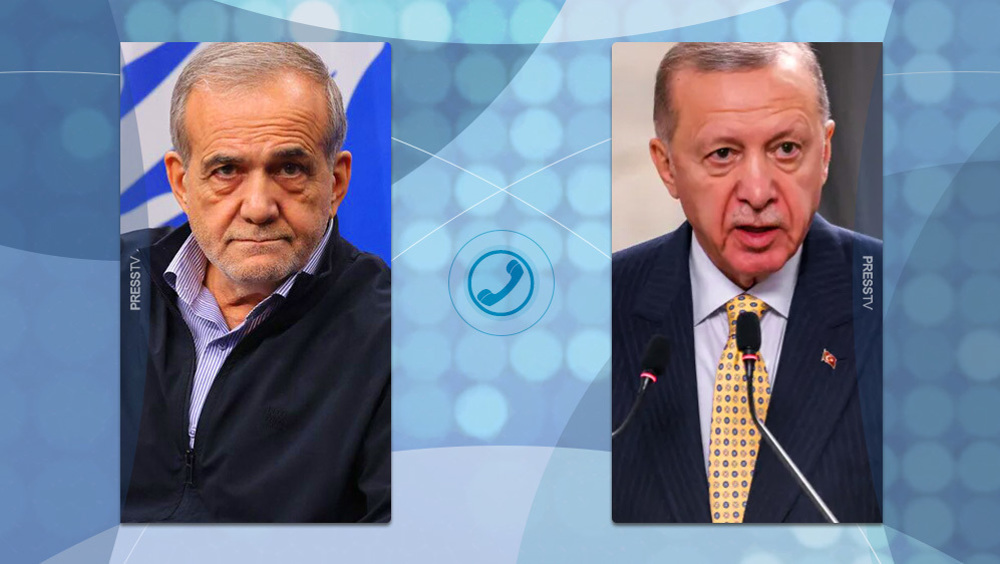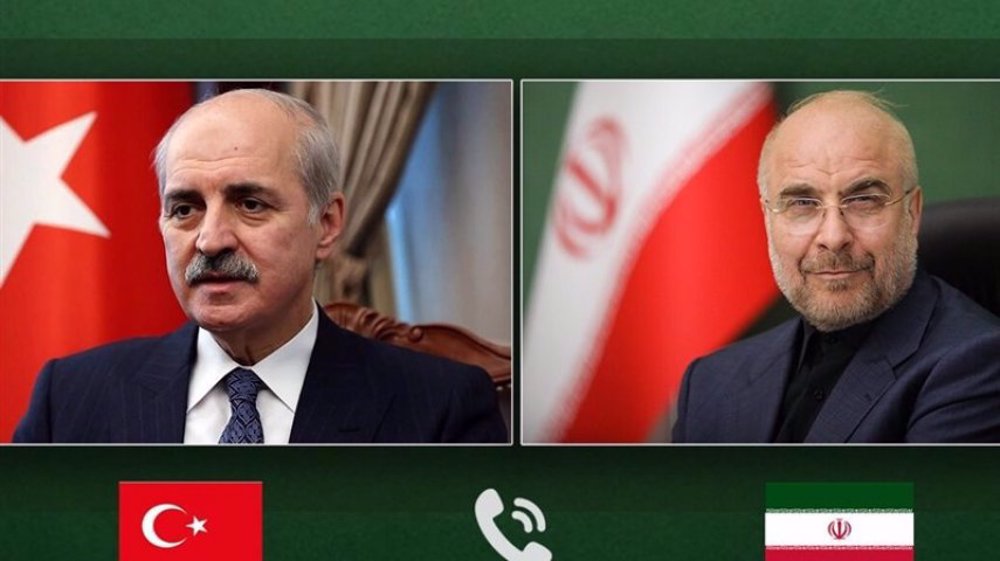Mesut Ozil Quits German national team over racism; Turkey hails decision
Turkey has praised a decision by German soccer star Mesut Ozil to quit the national team for being subjected to “racism and disrespect” over his Turkish roots following his meeting with President Recep Tayyip Erdogan back in May.
In a lengthy post on social media on Sunday, the 29-year-old attacking midfielder announced that he would no longer be playing for Germany. The Arsenal midfielder said he had been receiving hate mails, threatening phone calls and comments on social media over posing for a photo with Erdogan back in May in London.
In response, Turkish Justice Minister Abdulhamit Gul congratulated Ozil in a Twitter post on Monday, saying by leaving the German national team, the player “has scored the most beautiful goal against the virus of fascism.”
Turkey’s Sports Minister Mehmet Kasapoglu also reacted to Ozil’s decision by posting the picture of a smiling Ozil with Erdogan.
“We sincerely support the honorable stance that our brother Mesut Ozil has taken,” he wrote on Twitter.
Ozil has also been blamed over the past weeks for Germany’s worst World Cup performance in eight decades.
“I used to wear the German shirt with such pride and excitement, but now I don't. I feel unwanted and think that what I have achieved since my international debut in 2009 has been forgotten,” Ozil said.
Chancellor Angela Merkel said through her spokeswoman that Berlin “respects” Ozil’s decision.
“The chancellor values Mesut Ozil highly. He is a footballer who has contributed a great deal to the national team,” said Ulrike Demmer, adding that he has “now made a decision that must be respected.”

German politicians have even questioned Ozil’s loyalty after a picture of him was released alongside the Turkish president in May, suggesting back then that he should be removed from the national squad ahead of the World Cup.
Ozil, however, explained that the meeting with Erdogan was apolitical and that he did not intend to make a political statement by appearing with Erdogan.
“The picture we took had no political intentions,” said Ozil, adding that it “was about me respecting the highest office of my family’s country.”
The Arsenal star explained that he would be “disrespecting his ancestors’ roots” if he had refused to meet the Turkish president.
Ozil complains of ‘racism, disrespect’
Citing anti-Turkish comments from German politicians and his fans, Ozil announced in his Twitter posts on Sunday that he was leaving the national team “with a heavy heart.”
“It is with a heavy heart and after much consideration that because of recent events, I will no longer be playing for Germany at international level whilst I have this feeling of racism and disrespect,” he wrote. “Racism should never, ever be accepted.”
“Like many people, my ancestry traces back to more than one country. Whilst I grew up in Germany, my family background has its roots firmly based in Turkey,” he said. “I have two hearts, one German and one Turkish.”
Ozil also criticized the German Football Federation (DFB), its president, fans and the German media for what he called double standards in dealing with people with Turkish roots.
“Arguably the issue that has frustrated me the most over the past couple of months has been the mistreatment from the DFB, and in particular the DFB President Richard Grindel,” he wrote.
“The treatment I have received from the DFB and many others makes me no longer want to wear the German national team shirt,” he said. “In the eyes of Grindel and his supporters, I am German when we win, but I am an immigrant when we lose.”

At the time that the picture was released, Grindel publicly accused the players — whose families came to Germany from Turkey — of allowing themselves to be “exploited” by Erdogan for political purposes.
Ozil also said he could abide criticism of his performance on the pitch, but not when it was linked to his ethnic background.
“If a newspaper or pundit finds fault in a game I play in, then I can accept this,” he wrote.
“But what I can’t accept are German media outlets repeatedly blaming my dual-heritage and a simple picture for a bad World Cup on behalf of an entire squad,” he said, calling it “right-wing propaganda.”
“This crosses a personal line that should never be crossed, as newspapers try to turn the nation of Germany against me,” he added.
Germany is home to more than three million people of Turkish origin.
Relations between Berlin and Ankara hit a new low, after a failed coup against Erdogan in 2016, which was followed by the government’s crackdown on its opponents and a two-year state of emergency.
Germany has repeatedly criticized Erdogan for the crackdown on political opponents. The Turkish president also accused Germany on several occasions of “fascist actions” reminiscent of the Nazi era.
VIDEO | Press TV's news headlines
VIDEO | Afghanistan opens first specialized cancer hospital
Trump officials held secret talks with Canadian separatist group: Report
Iran FM: EU’s blacklisting of IRGC a ‘major strategic mistake’
VIDEO | Pakistan’s legal community condemns UNHRC anti-Iran resolution
Resistance groups announce volunteer recruitment to defend Iran
Indians rally to condemn Trump's threats against Ayatollah Khamenei
VIDEO | Iran will devastate Israel if it cuts loose













 This makes it easy to access the Press TV website
This makes it easy to access the Press TV website